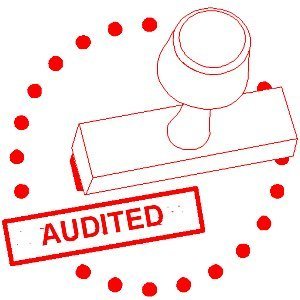VietNamNet Bridge – The new regulation that listed companies have to submit
half-year finance reports with auditors’ review has put a hard pressure on
auditing firms, which have to take too many jobs in the high auditing season.

It is estimated that 700 companies list their shares on both the Hanoi and HCM
City bourses. Besides, hundreds of public companies also have to expose
information like listed companies since June 1, 2012, in accordance with a new
circular.
Meanwhile, only 43 auditing firms have been accepted by the State Securities
Commission SSC to audit the finance reports of listed companies. This means that
the ratio of the number of businesses to submit reviewed finance reports on the
number of auditing firms is too big. Analysts have warned that this would be a
burden on auditing firms and may lead to the reviewed finance reports with big
errors.
Nguyen Thanh Tung, Deputy General Director of AASC, a financial consultancy and
auditing firm, said that mid-year and year-end – the finance report seasons –
are always the busiest time for auditing firms. In general, reviewing finance
reports is a less complicated work than auditing finance reports. However, it
always takes more time to review the finance reports of new clients.
The big workload, plus the limited time for reviewing both put a hard pressure
on auditing firms, which may lead to low auditing service quality. In many
cases, auditors and businesses cannot reach agreements and auditors cannot
release auditing reports.
Some listed companies reportedly exploited the overloading of auditing firms to
“process” their figures and deceive auditing firms. Vien Dong Pharmacy and SME
Securities Company are the two typical examples. Therefore, even the audited
finance reports have also raised doubts among investors.
Changing accounting year the optimal solution
Bui Van Mai, Secretary General of the Vietnam Association of Certified Public
Accountants VACPA, has said that changing the fiscal year proves to be the best
solution to the problem. This would help ease the pressure on auditing firms at
some certain moments, thus allowing to minimize the possible errors.
Tung has also applauded the idea, saying that the application of different
accounting year mechanisms would bring benefits to both auditors and businesses.
Those businesses, which have their finance reports audited in low seasons, would
be able to save costs because auditing firms would accept lower fee in non-rush
seasons. Meanwhile, auditors would have more time to review finance reports,
which can ensure the better and more thorough auditing.
Nevertheless, the number of businesses accepting to change fiscal year remains
modest.
In early 2012, GLT, an electric technique company, made the decision to change
the fiscal year, under which, its fiscal year would begin on April 1 and finish
on March 31 of the next year instead of January 1 – December 31 as previously
applied.
Prior to that, Huu Lien A Chau also decided that its next fiscal year begins on
October 1, 2011, and finishes on September 30, 2012. CMG, a technology group and
TMS, a freight and forwarding company, have also announced that their fiscal
year would last from April 1 every year to March 31 of the next year.
Mai emphasized that it’s necessary to apply the policies to encourage businesses
to change fiscal years, including the policies on tax payment delay or fee
reductions. In fact, many businesses set up the fiscal year coinciding with
calendar year just because of the habit. Meanwhile, the habit has caused too
many problems.
Source: DTCK
- © Copyright of Vietnamnet Global.
- Tel: 024 3772 7988 Fax: (024) 37722734
- Email: evnn@vietnamnet.vn